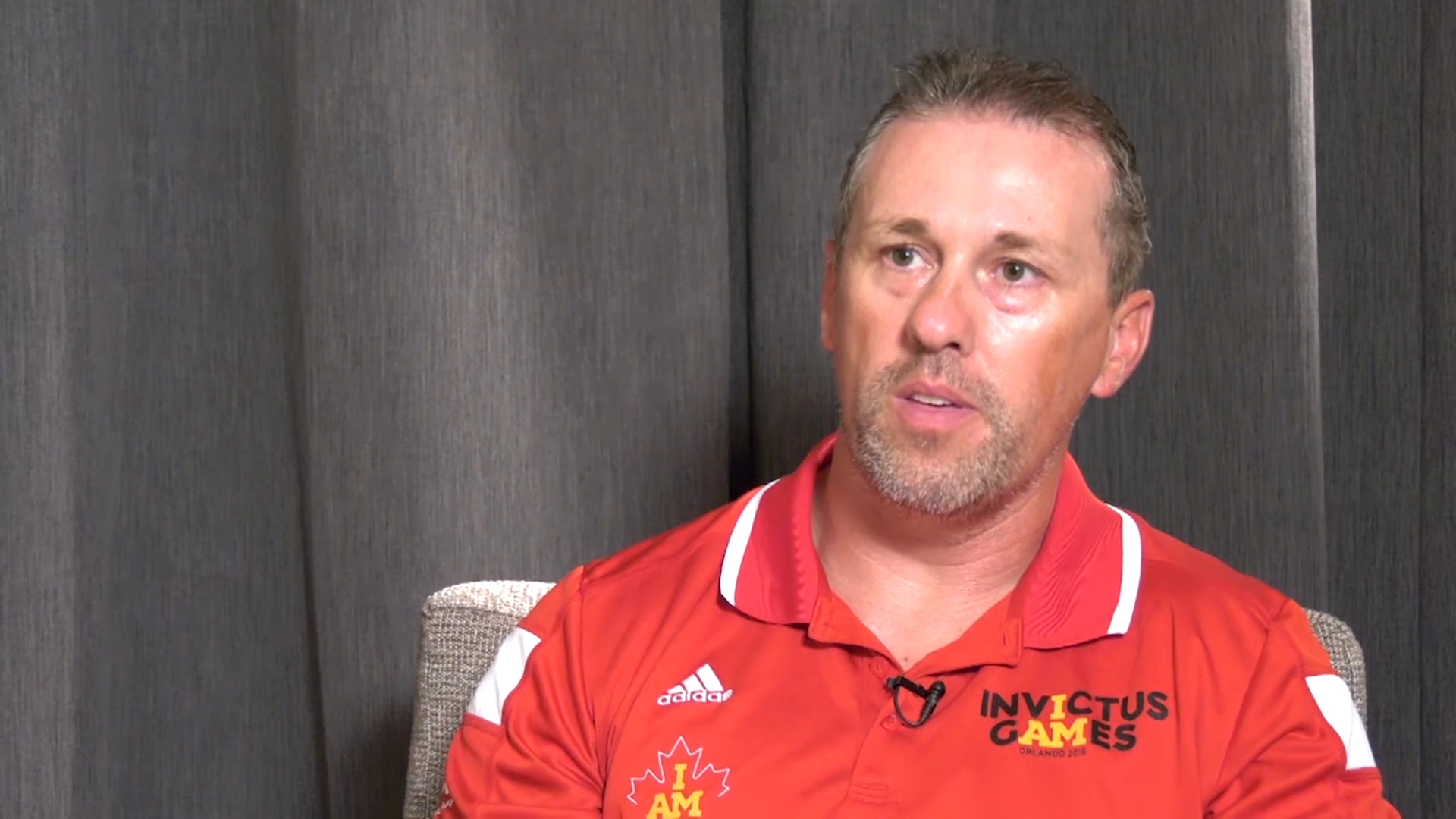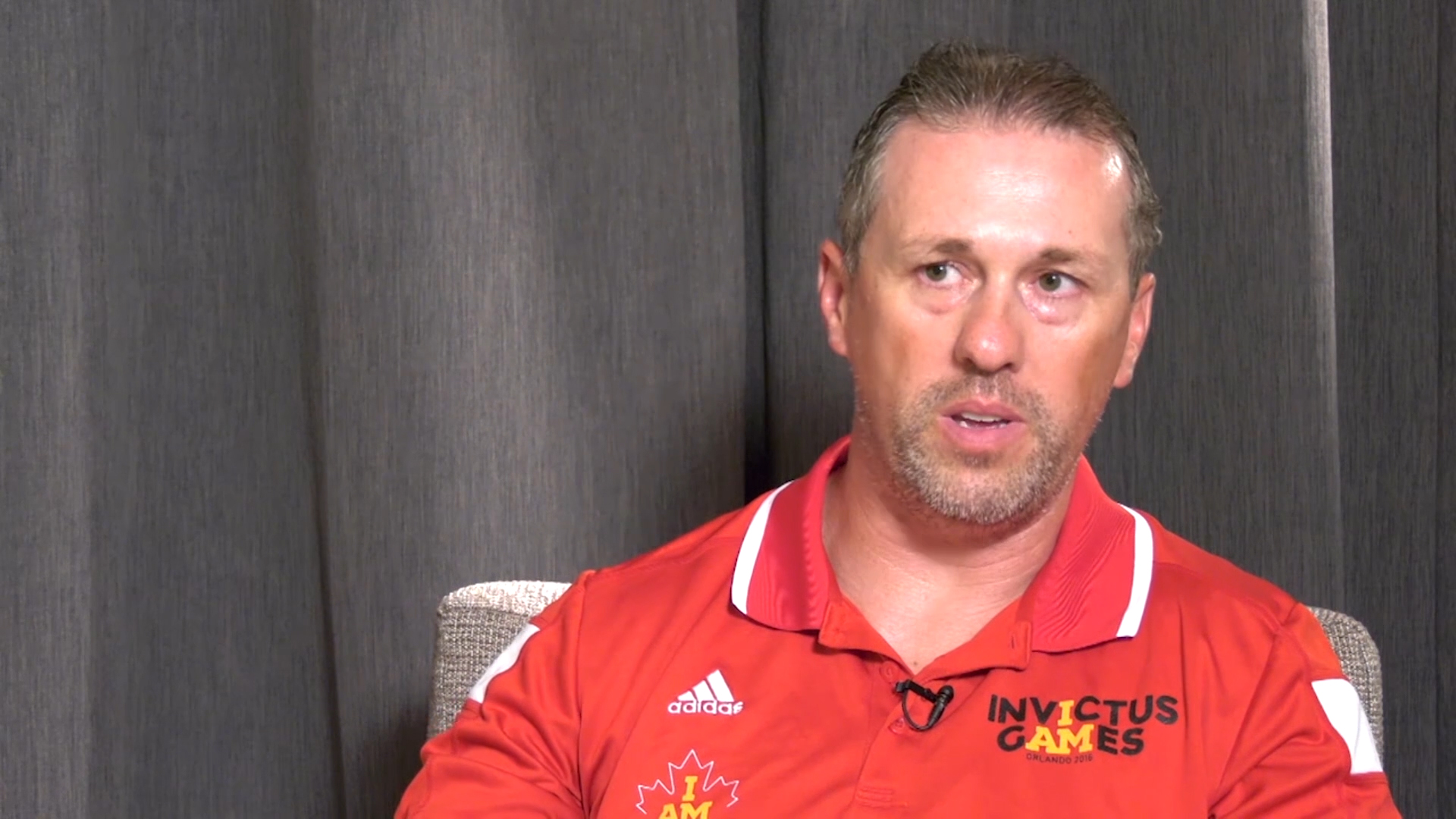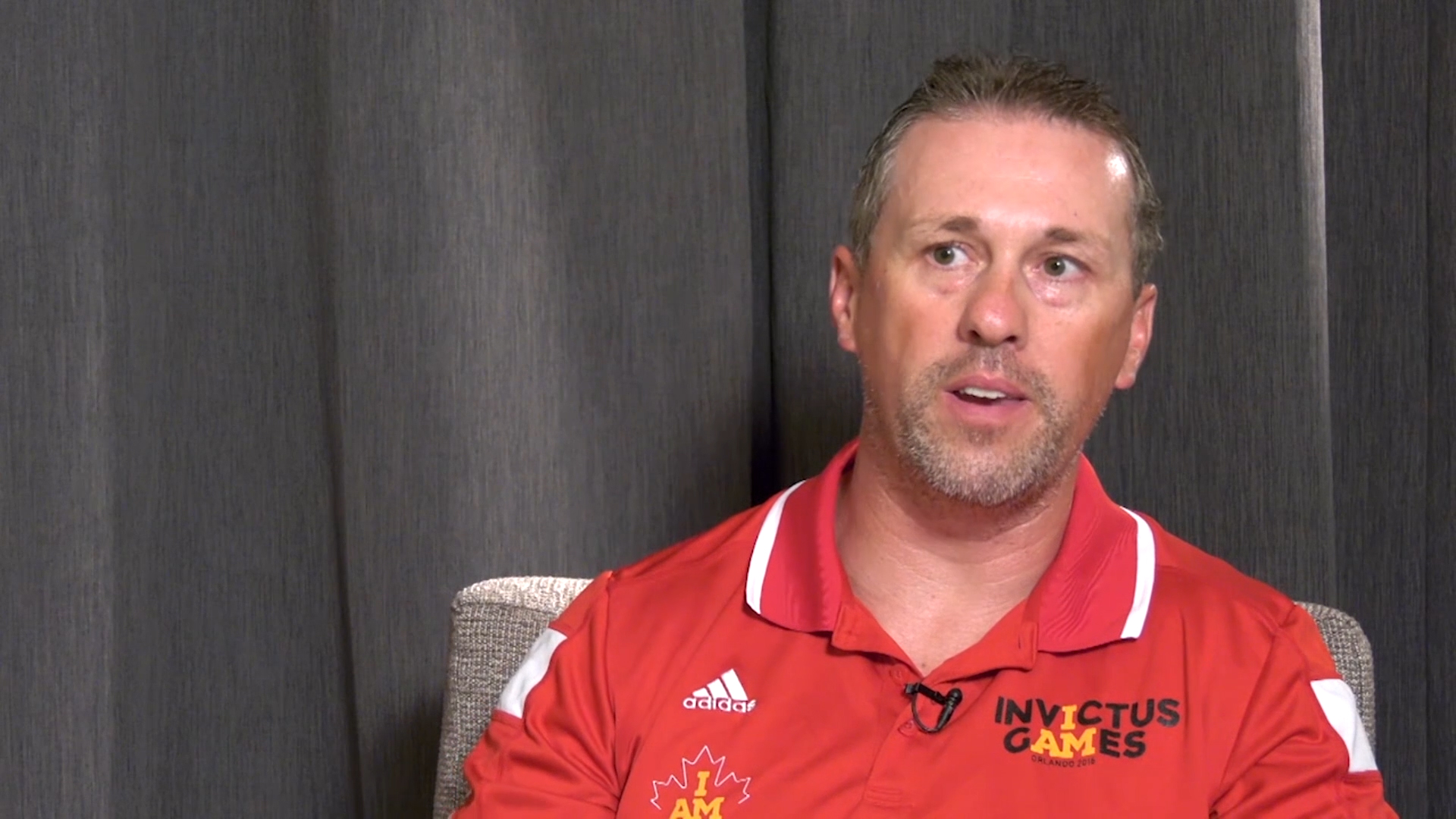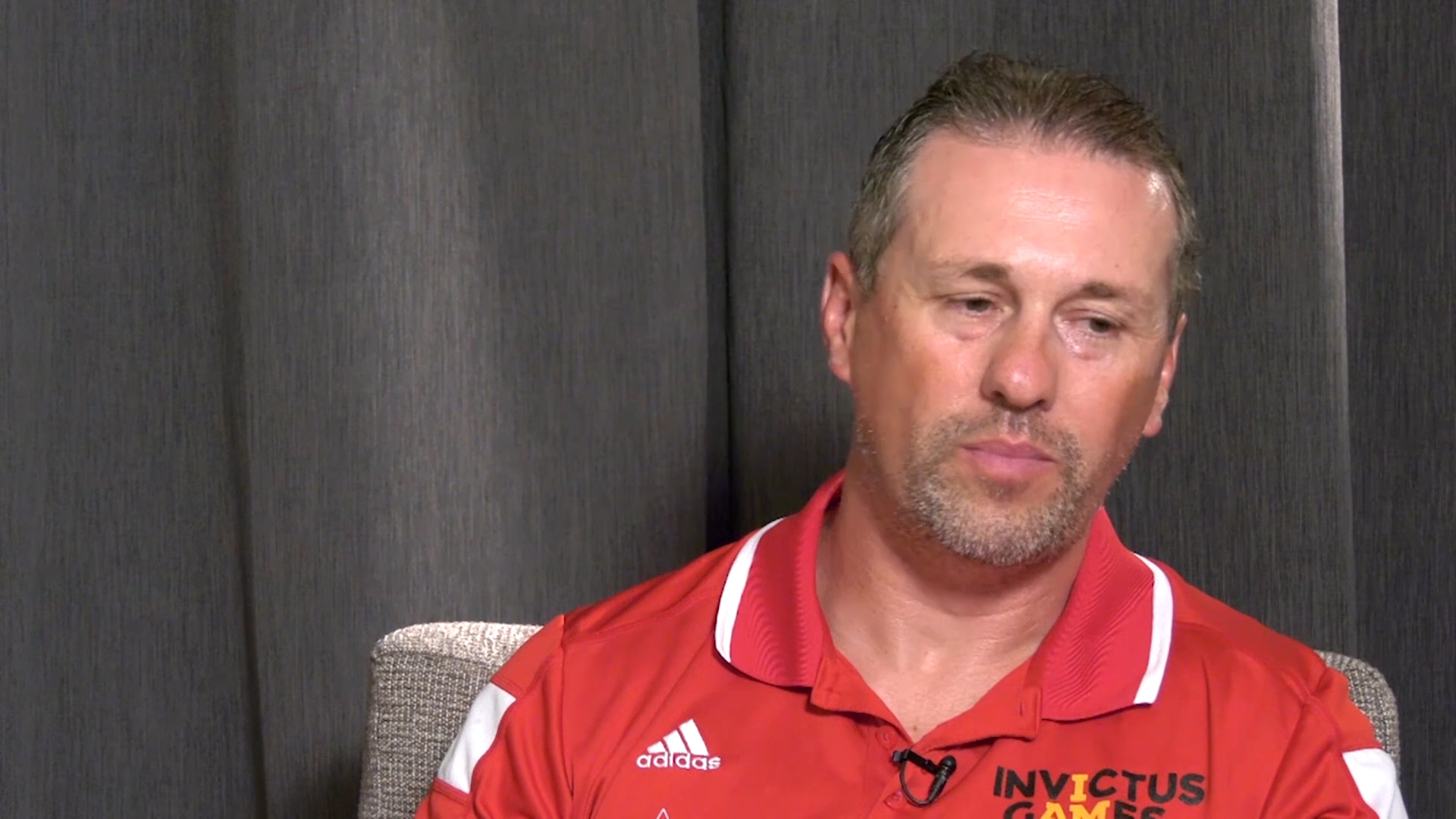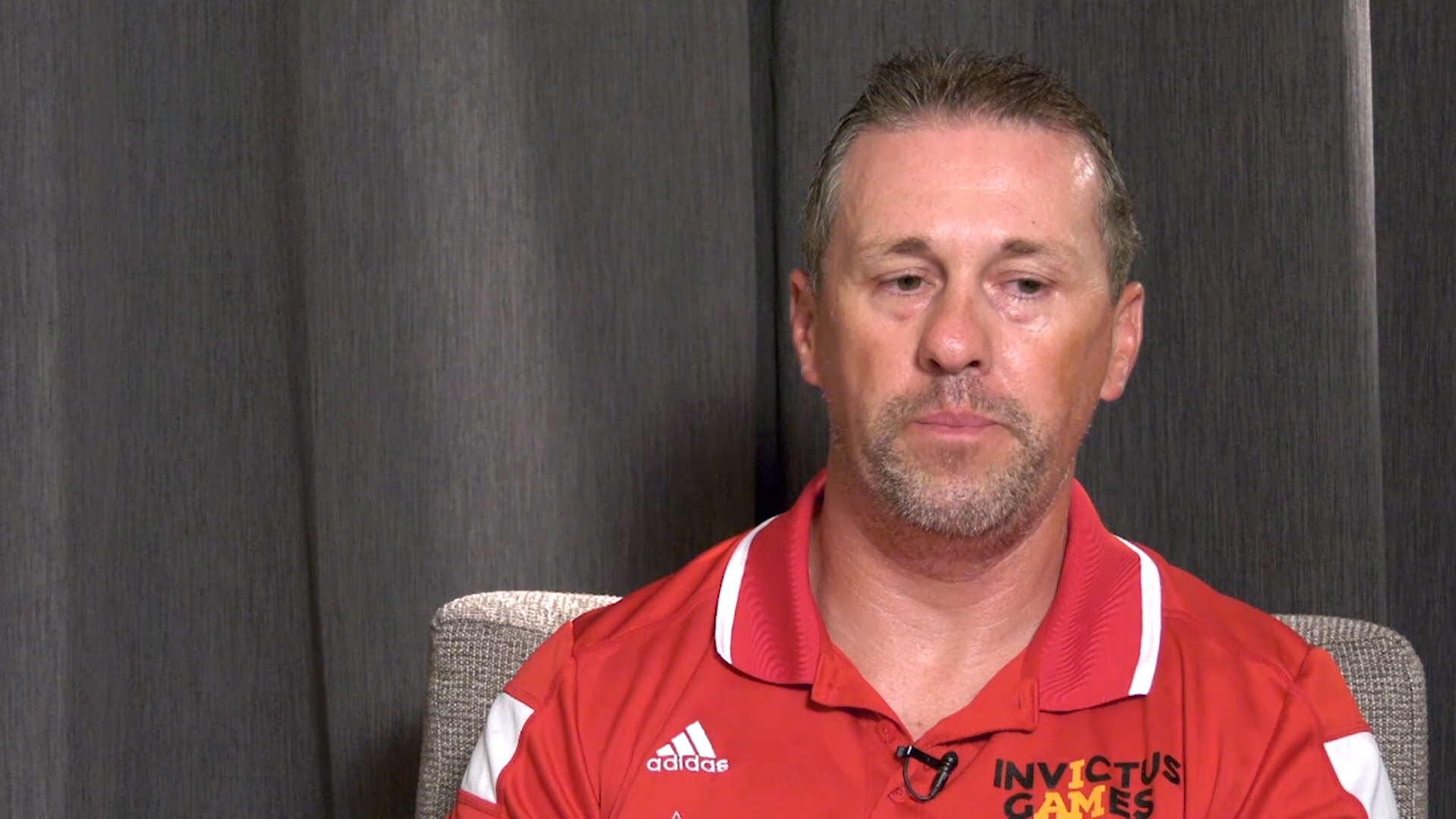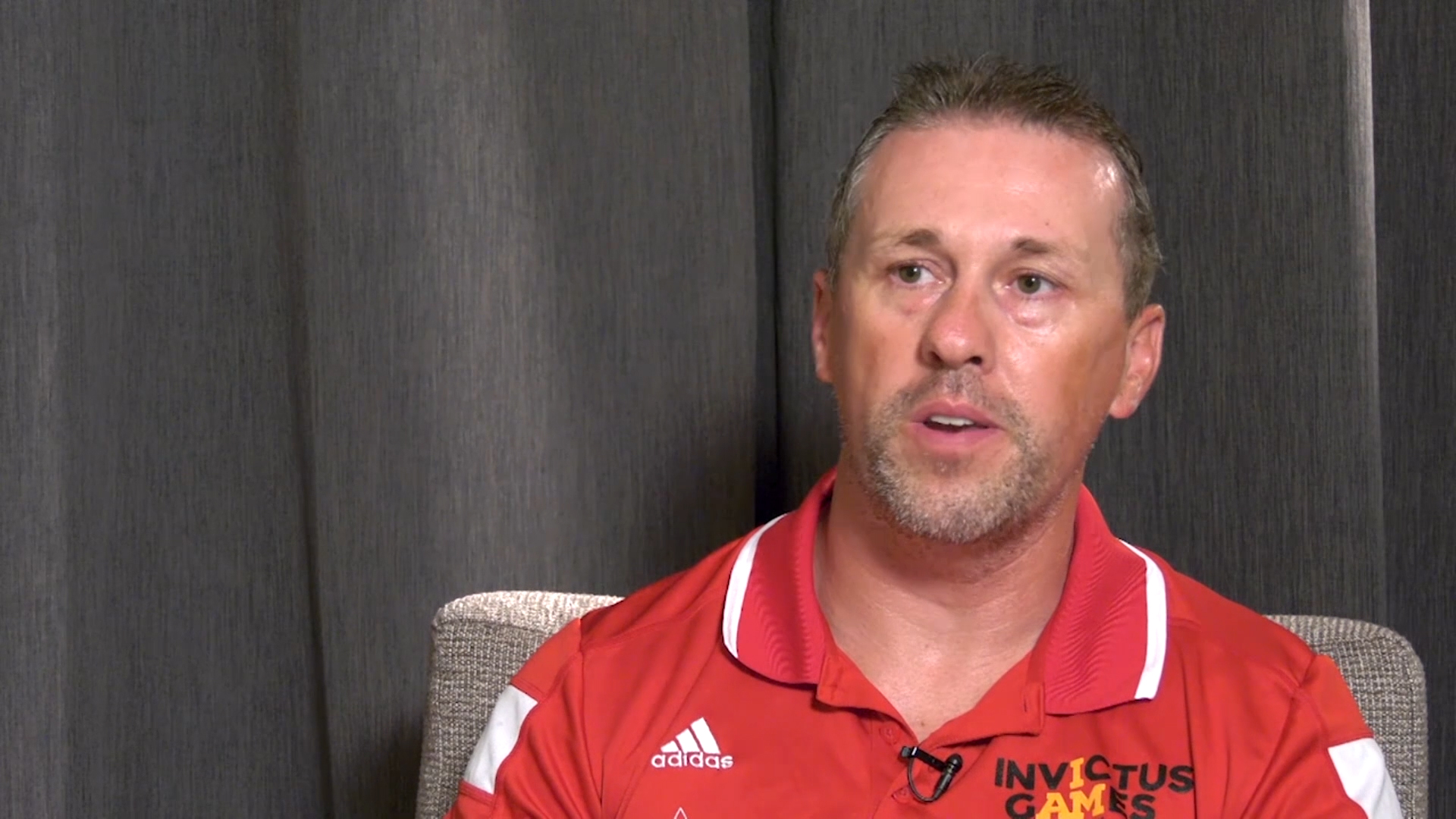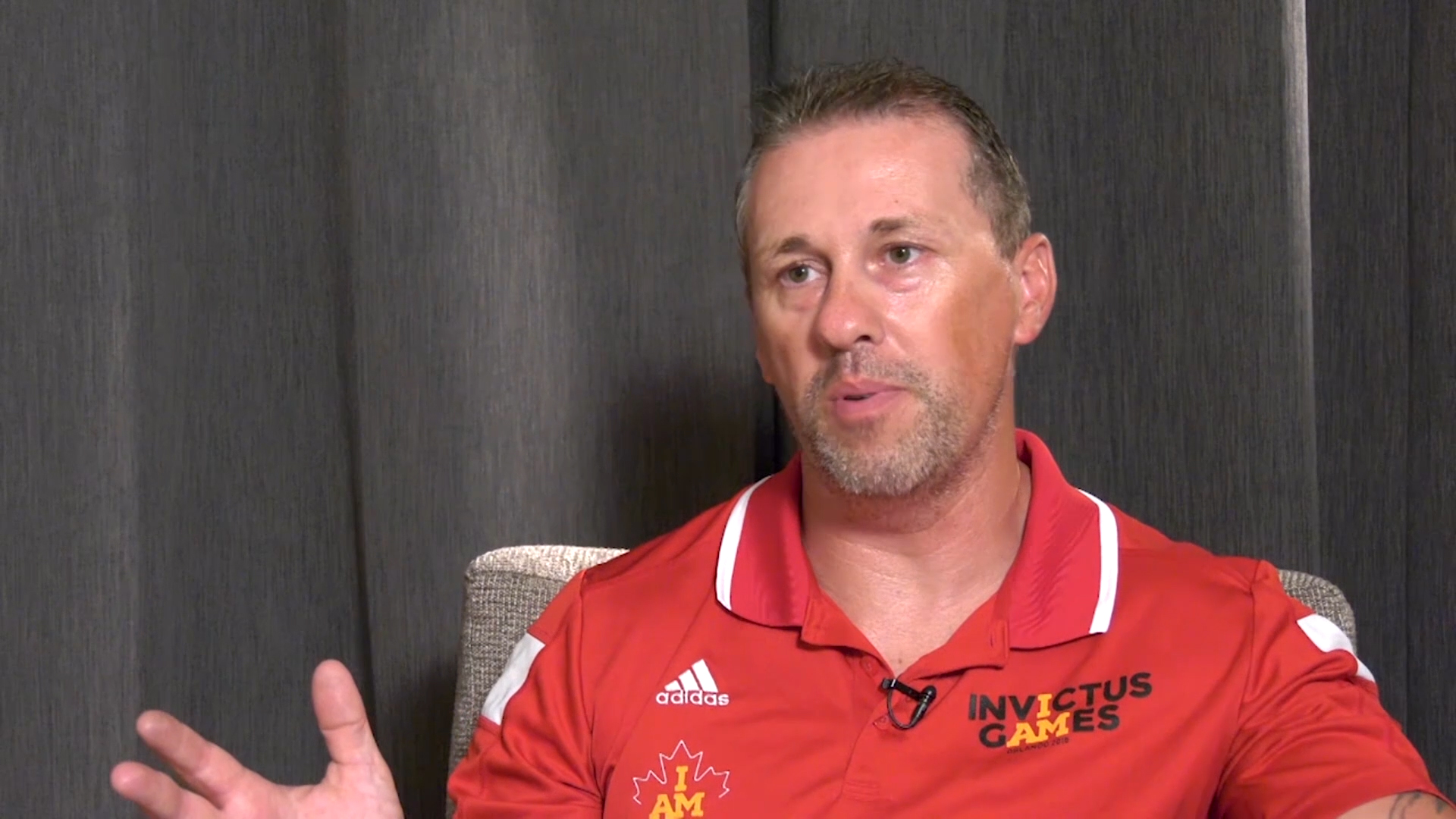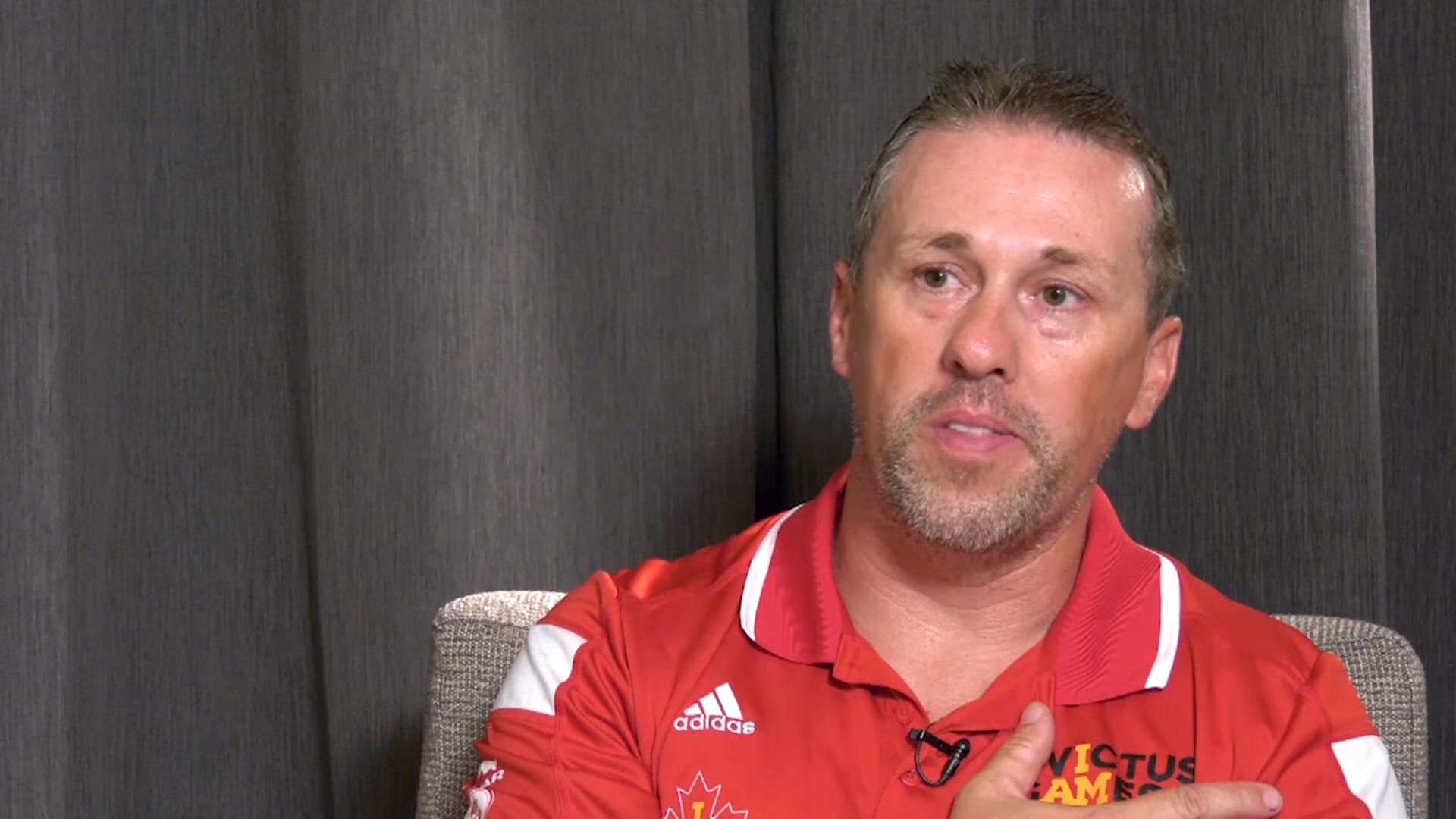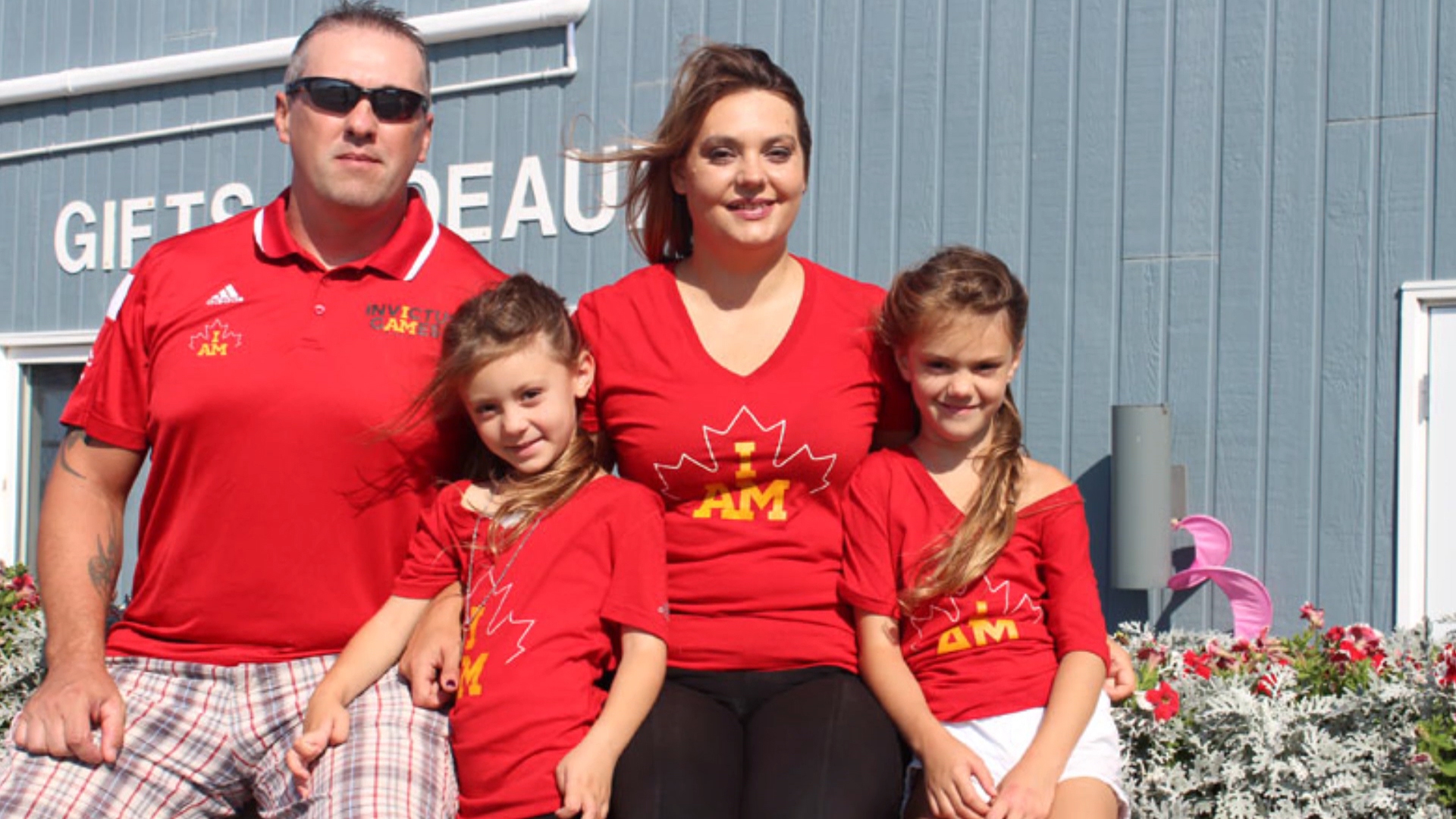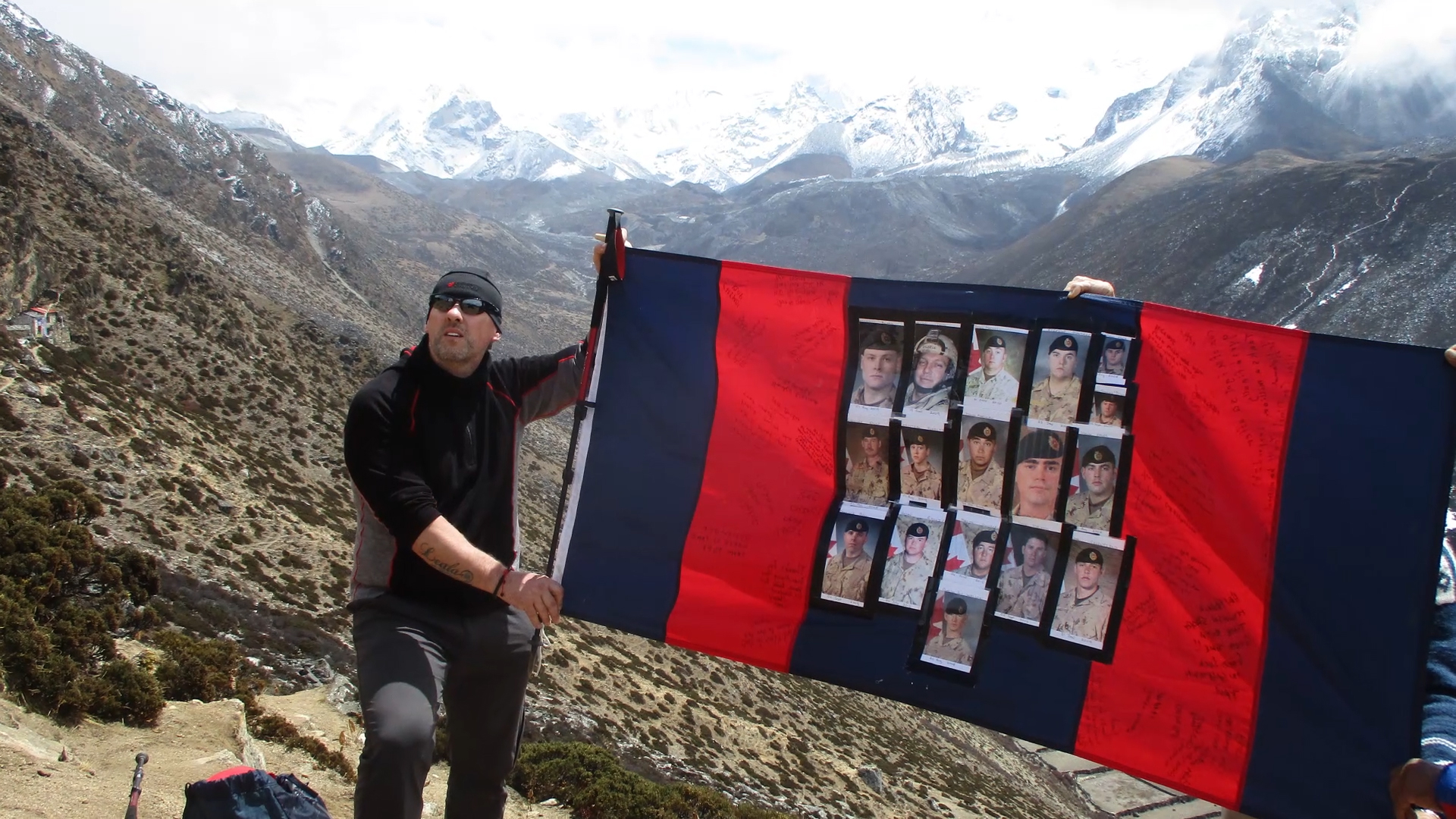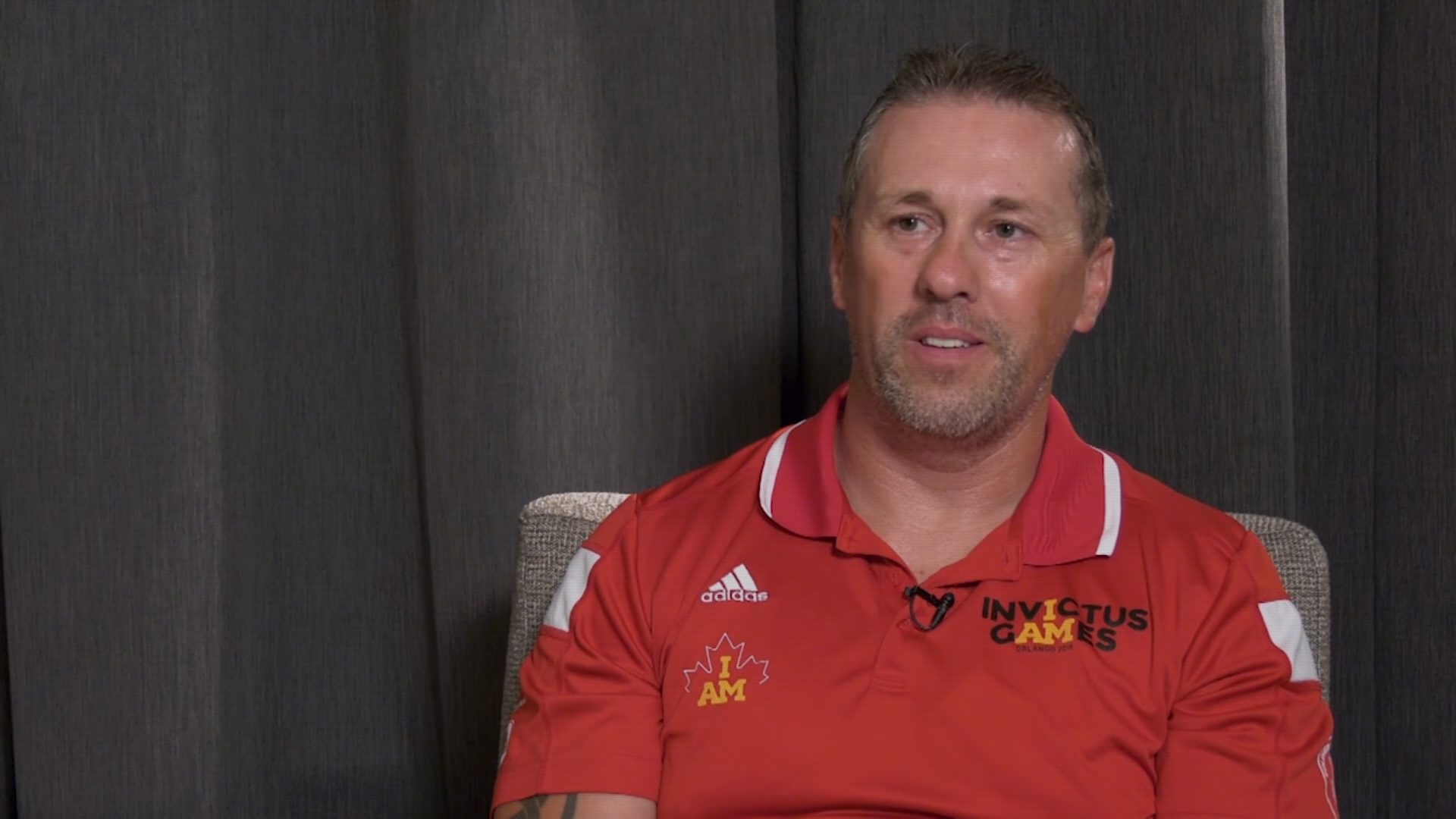Well after Africa we had to change our whole
doctrine on, when September 11th happened
what we were going to do because we
were so focused on these other
missions with Bosnia and Africa that
now we are going into a combat role.
So we needed new gear.
We didn’t have the proper equipment.
We didn’t have all the stuff that we
needed to go and do this mission but it
came really quick and, you know,
we had what we needed so in ’04 when
I was first there we were driving
around in the old Iltis jeeps, you know,
no tops on them through cities and stuff.
Soft skin vehicles is what we call them.
So we were doing that.
The attacks weren’t as frequent so
at that point in 2004 we weren’t there in
a combat role but we were there as part
of the mission. So again we went back
to doing what we do. We went out and
we destroyed unexploded ordinances.
We were doing checkpoints.
We were looking for insurgency.
So our tempo was a lot different than being
on the peacekeeping mission in Africa.
It was more strict in terms of, okay this is
your daily routine, you’re doing this,
this and this all day and come back and
get ready and go do it again.
So fast forward when I go back in ’07 we
weren’t driving in soft skin vehicles through
the city. Everything was up-armoured.
We were in a combat role so it was a
combat mission and we knew that okay we
were actually going to go and face the
bad guys, the insurgency, the Taliban,
whoever was there. And we were down
south too so I went from being in Kabul
to going south to Kandahar city and being
part of the biggest force that we’ve been,
that I’ve seen in my career at the time.
All these nations come together and,
you know, we are all on the same page so
we had the same playbook and
we went out and we brought it to them.
We brought it to the bad guys.
They were so used to conflict but
I think in their eyes anything was better
than what they had at the time so some
villages were more receptive to us going
through and being there than others and
you could see that in their eyes,
in the faces, in the expressions, you know,
it would tell you a million things about
a person by doing that.
Some places were good.
You know the children, kids are kids but
we didn’t know. One day they were throwing
rocks at us. Another day they would be
throwing grenades at us. You don’t know.
You are just driving down the road and
you see them kids come up and they are
laughing and giggling because they think
it’s funny but someone has been paying
them to go and do this so that was difficult
having to find that balance on who
we could trust. And then not knowing
who we were fighting. We wouldn’t know,
we didn’t know, you could put a name on
a person but there was no uniform to
identify them as being that person.
So that was a challenge for us.
And the elders, they wanted better
things for their villages, you know,
they wanted the water, they wanted
more food and we tried to provide
that to them so they were helping
us in that aspect but then you have
this organization coming in behind
us when we leave and feeding them
lies and telling them no this is not
the way and if you don’t do this then
we are going to come back and we are
going to hurt your family.
So then they are caught, if we do this
then this is going to happen and if we
do that then this will happen so it was hard.
It was hit and miss a lot of the time that I
was there. And that’s only my experience.
You’re a soldier first. We branched off and
we were with an infantry company and
our role was to find the improvised
explosive devices and then call for our
specialized teams to come out and destroy
these devices as well as we were there
to keep the routes, the roads open so that
our allies could travel safely down any
route that they needed to go down
without being compromised.
Any given day we could find, I don’t know
maybe four of five devices but then there
are the ones that we don’t see.
So we were always at the front of the
spear and we were always, if someone…
I know a lot of my infantry buddies don’t
like this but when they are all facing a
situation where most people want to
withdraw well then we’re going forward
because we got to make sure that these
guys can get through to their objective
without getting hurt beforehand I guess is
the easiest way to say it. Explosive ordinance
disposals is just that. The country is littered
with bombs from past wars through
that country so it’s just littered. It’s nothing
to walk down through a village and see
all this stuff so we would get rid of
it or as much of that as we could.



